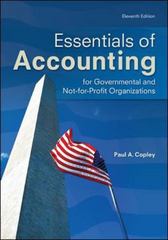

Question 5 [10 marks] A. Three years ago, you founded a Start-up, Inc., a retailer specializing in the sale of equipment and clothing for recreational activities such as camping, skiing, and hiking. So far, your company has gone through three funding rounds: Round Year Investor Shares Share Price (in million) ($) Series A 2016 You 1 1.00 Series B 2017 Angels 2 2.50 Series C 2018 Venture capital 3 3.25 It is currently 2019 and you need to raise additional capital to expand your business. You and the other shareholders have decided to take your firm public through an IPO and issue an additional 6 million new shares through this IPO. Assuming that your firm successfully completes its IPO and all existing shareholders do not sell their shares via this IPO. (1) Your investment bankers have forecasted that 2019 net income will be $10 million and assembled the below information based on data for other companies in the same industry that have recently gone public. Assuming that your company's IPO is set at a price that implies a similar multiple, what will your company's IPO price per share be? Comparable Company Price/Earnings Eenie 12.5 Meenie 15.5 Minie 16.5 Moe 17.5 (ii) What percentage of the firm will you own before and after the IPO? Explain whether the change in your ownership is an argument for or an argument against going public. B. Ocean Gas is a private firm with no debt and has 12 million shares outstanding, and it is about to issue 4 million new shares in an IPO. The IPO price has been set at $16 per share, and the underwriting spread is 8%. Assuming that the existing shareholders sell a half of their shares at the IPO, and the IPO is a big success so share price rises to $55 on the first day of trading (1) How much is the total money raised from the IPO? (ii) How much is the existing shareholders receive through this IPO? (iii) Explain whether there is the underpricing situation in this IPO (iv) Assuming that the market value of the firm after the IPO is the fair market value, and that the firm could have issued shares directly to investors at their fair market value of firm assets in a perfect market with no underwriting spread and no underpricing, what would the share price have been in this case, if Ocean Gas and its existing shareholders can raise the same amount as in part (1)? Question 5 [10 marks] A. Three years ago, you founded a Start-up, Inc., a retailer specializing in the sale of equipment and clothing for recreational activities such as camping, skiing, and hiking. So far, your company has gone through three funding rounds: Round Year Investor Shares Share Price (in million) ($) Series A 2016 You 1 1.00 Series B 2017 Angels 2 2.50 Series C 2018 Venture capital 3 3.25 It is currently 2019 and you need to raise additional capital to expand your business. You and the other shareholders have decided to take your firm public through an IPO and issue an additional 6 million new shares through this IPO. Assuming that your firm successfully completes its IPO and all existing shareholders do not sell their shares via this IPO. (1) Your investment bankers have forecasted that 2019 net income will be $10 million and assembled the below information based on data for other companies in the same industry that have recently gone public. Assuming that your company's IPO is set at a price that implies a similar multiple, what will your company's IPO price per share be? Comparable Company Price/Earnings Eenie 12.5 Meenie 15.5 Minie 16.5 Moe 17.5 (ii) What percentage of the firm will you own before and after the IPO? Explain whether the change in your ownership is an argument for or an argument against going public. B. Ocean Gas is a private firm with no debt and has 12 million shares outstanding, and it is about to issue 4 million new shares in an IPO. The IPO price has been set at $16 per share, and the underwriting spread is 8%. Assuming that the existing shareholders sell a half of their shares at the IPO, and the IPO is a big success so share price rises to $55 on the first day of trading (1) How much is the total money raised from the IPO? (ii) How much is the existing shareholders receive through this IPO? (iii) Explain whether there is the underpricing situation in this IPO (iv) Assuming that the market value of the firm after the IPO is the fair market value, and that the firm could have issued shares directly to investors at their fair market value of firm assets in a perfect market with no underwriting spread and no underpricing, what would the share price have been in this case, if Ocean Gas and its existing shareholders can raise the same amount as in part (1)








